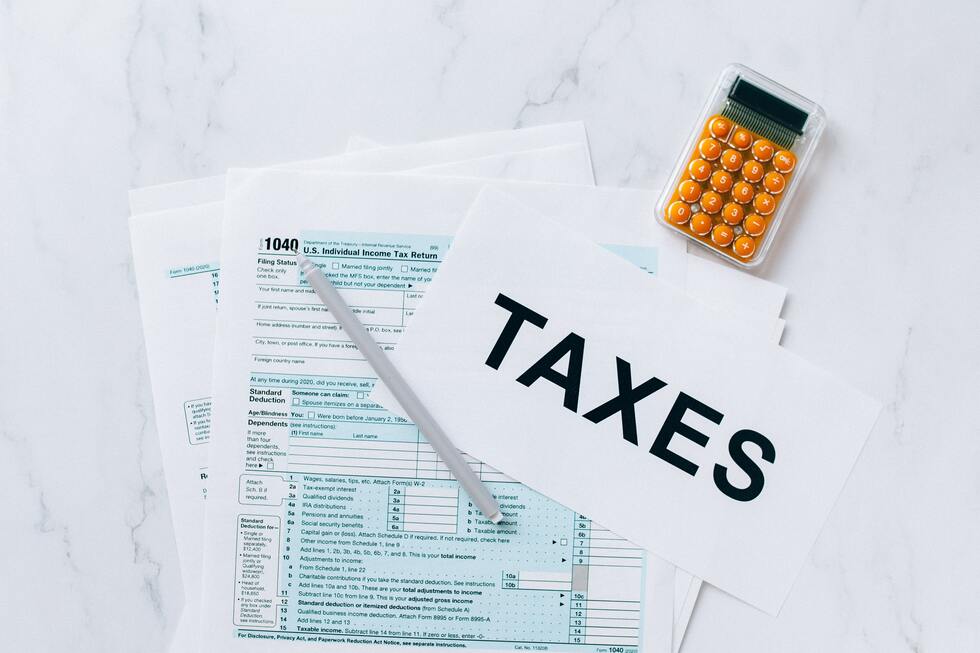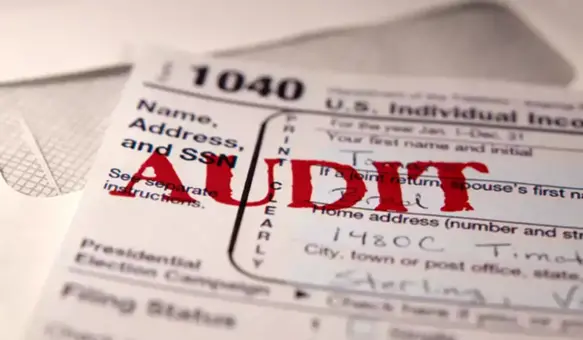Filing Taxes in the US as a Non-Resident with Form 1040

The United States of America hosts a wide variety of foreign expats every year who may be on temporary work assignments with no intention of staying in the US or acquiring citizenship or a Green Card. Like every employed person in the United States, foreign expats have employment tax and are required to file an annual return and pay any applicable taxes. In this article, we are going to be taking a look at non-residents who are required to pay taxes, how your residency status affects you, what you need to know about United States taxes, and what you will need to file your first US tax return.
Which Non-Residents are Required to File a US tax return?
Everybody who earns more than a certain amount working each year in the United States has taxable income is required to file a US tax return, but the rules are a bit different for non-residents – simpler, actually. The basic rule of thumb for a working non-resident is: You must file taxes for every year you’re living and working in the United States. This is true even if one or more of the following is true. Your primary place of work was in another country
- Your income was not earned from an employer within the United States
- You are able to claim an income tax exemption on your income
- You do not work in the United States but earn other types of income such as investment income from which taxes are not withheld
- You are a trustee on an estate or trust owned by a non-resident
To sum up this section…If you are a foreign national living in the United States and earn money either by working a traditional job or through nontraditional means, you must file a US income tax return for every tax year you live in the United States.
Your Non-Resident Status and How Your US Taxes are Affected
Your residency status directly impacts the information you’re required to report on your US tax return. Residents, for example, are required to report and pay taxes on all worldwide income to the IRS, and non-residents only have to report income earned in the United States. Because the tax burden on worldwide income can become excessive, it will be important for you to not only report your status accurately but file a correct tax return, as well.
United States residents are defined as:
- A US Citizen or Green Card Holder
- A foreign national who meets the Substantial Presence Test:
- Having been in the United States for at least 30 days in the current year, and
- Having had lived in the United States – or were at least physically present in the country – for at least 183 days out of the current year and the two preceding years. These dates do not have to be consecutive; you simply have to have been present in the country for at least the specified time frame.
For non-residents who would like to be taxed the same as residents in their first year without having qualified for the Substantial Presence Test, there is an option to do this offered by the IRS. You simply select “First Year Selection,” and the IRS will tax you like a citizen. If you are a non-resident who did not choose the First Year Selection, you will only be responsible for reporting and paying taxes on income earned in the United States.
Basics about How the IRS Works
If you are a non-resident who has never before had to work and file taxes here in the US, you probably have little information about either your tax situation or the IRS (Internal Revenue Service), tax filing requirements, and other details about the taxation system in the United States. This section is designed to help you develop a better understanding of the IRS and how to file your non-resident taxes.
The first thing you need to know about US taxes is the filing deadline to file. All returns must be postmarked (in the mail) by April 15, unless this day falls on a weekend or holiday – in which case, it would be due on the following Monday. Or if there are any changes because of the COVID-19 pandemic as it happened in 2020. The deadline for U.S. citizens living abroad to file individual tax returns or file Form 4868 is on June 15. If you find you need more time to file, you may use Form 4868 to request a filing extension. It’s important to remember, though, that if you get an extension and you owe taxes, you need to pay the IRS by April 15. If you have a tax liability and you wait until your extension date to take care of it, you will have been charged interest the entire time.
Next, it’s important to learn about how to file your United States tax return as a non-resident. One of the main tax forms used is the IRS Form 1040, and there are multiple variations of this form. You are going to used Form 1040NR or Form 1040NREZ, depending on the complexity of your taxes. If you have multiple streams of income, a large number of assets, or certain itemized deductions you will be required to file additional forms and schedules. Remember, though, that – as a non-resident – you are only required to claim your information contained within the United States – not outside of the country; unless, of course, you took the “First Year Selection” mentioned earlier.
Another important note to make about the difference between filing as a non-resident and filing with the ‘First Year Selection” is that – even though your worldwide income will be taxed – you will qualify for a greater number of exemptions by checking the First Year Selection. Checking “First Year Selection” allows you to claim an exemption on you, your spouse, and one for each of your dependents that live with you in the United States.
Preparing to File Taxes for the First Time in the US as a Non-Resident
US Citizens and Green Card holders of the US have 1 of 2 methods of identifying themselves: A Social Security number or a Tax Identification Number (also simply called Tax ID). If you are a first-time non-resident, it’s quite likely that you have neither of these. It will be important for you to get a Tax Identification Number not only for yourself, but for any dependents that will be living with you. To request a Tax ID, simply file Form W-7. Make sure to take this step soon after getting into this country and well before taxes are due. Even though this form is easy to complete, the processing time can take 6 weeks or more.
As indicated earlier, the United States Internal Revenue Service allows taxpayers a standard deduction on a variety of expenses associated with both living and working (more for some industries). Many taxpayers spend the entire year preparing simply by getting organized. Make sure to save receipts — especially receipts for important items like gas and food or any special costs associated with your work. If you have investment income, own properties, pay a mortgage, or have any activity such as this in your life, take the time to visit www.irs.gov to figure out what forms or schedules you may need in addition to Form 1040NR.
If this is your first year as a US taxpayer and you feel confused, don’t worry! Most Americans who have been filing for years are confused by US tax preparation. The reality is that the United States has many more forms and more intricate (and changing) tax rules and regulations than most countries. It’s not hard to imagine being confused if you’ve spent your entire life paying taxes through an as much simpler process.
To Prepare or Not to Prepare Your Own US Taxes?
The only person who can decide if you want your taxes done by you or someone else is you. There is no law that says a CPA has to prepare taxes. If you are comfortable preparing your own US tax return, it’s within your right to do so. If you’re going to be filing for the first time, make sure to give yourself plenty of time by starting early. There will undoubtedly be a series of questions that come up which will require research and problem solving as you go through the process. Remember, it’s better to find out the correct answer and way to file before sending a false return to the IRS, as you will most likely be charged penalties.
If you don’t feel comfortable filing your own US taxes, Taxes for Expats can help for a great price and make sure the IRS doesn’t find any mistakes. If you need help filing US taxes as a non-resident, get in touch with an expat tax expert today.



